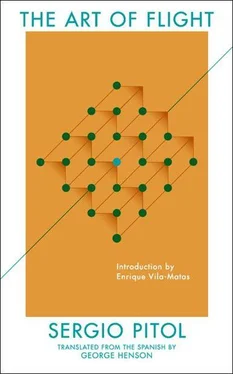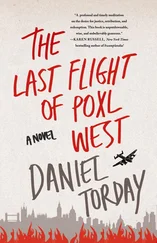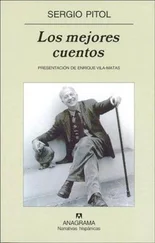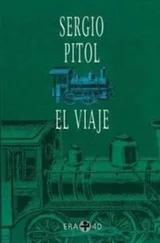What exploit by Napoleon could be compared in splendor or permanence with War and Peace , the National Episodes, The Charterhouse of Parma , or The Disasters of War —works that paradoxically grew out of the existence of these exploits?
For the writer, language is everything.
Form, structure, and every element of a story — plot, characters, tone, gestuality, revelation, or prophecy — are all products of language. It will always be language that announces what paths to follow. Robert Graves said that the primary obligation of the writer is to work without granting himself a truce in, from, with, and about the word.
The exceptional moments in literature occur when the author, no matter what course he follows when starting a work, manages to immerse himself into the deep currents of language in order to, in this way, lose his own identity. E. M. Forster suggests that at the core of every great creation beats a longing for anonymity. In the imaginary world of Tlön, dreams Borges, “there is no concept of plagiarism: it has been established that all books are the work of a single author who is timeless and anonymous.” “Every poet,” Octavio Paz concludes, “is only a pulse in the river of language.” A literary work is revealed as genius when the author succeeds in finding the dark current that carries vestiges of everything spoken since the time language was born, that is to say at the moment the writer feels he is transcribing a dictation, when the word makes its appearance even before being convened. If that moment is produced, life is saved! Thus the best pages of literature possess something at once luminous and unfathomable. All of us, as readers, have witnessed at some time this wonder. Speechless, astonished, excited, we have been conscious of the miracle that emerges from a page, one in which language and instinct have merged and the will of reason is overtaken by an energy that is greater, a page whose beauty is absolutely impossible to explain in its entirety. I am thinking of a very short story by Chekhov: “The Student.”
Like Berenson, I have concerned myself with the construction of “the house of life,” that is, the effort to understand the relationship between the individual and society, and the wish that this relationship be governed by the concepts of virtue and justice. Four years ago, shortly after returning definitively to Mexico, the wall that was a prelude to my first landing in Europe collapsed. A hopeful air spread across the world. It seemed that at last an age of freedom, fullness, tolerance, and prosperity had begun for everyone. At the same time, a dangerously narrow view was integrating the idea of democracy into a purely commercial mechanism: free trade. The results are obvious. The press repeats the unwelcome words everywhere: crisis, unemployment, recession, disillusionment, instability.
I returned to a Mexico very different from the one I left in 1961. It’s clear that there exist today signs of a civil society that was unthinkable when I left. It is an encouraging phenomenon that coexists with images of profound devastation: an uninhabitable city, a degraded landscape, an almost nonexistent sky. In Coyoacán, in the Plaza de la Conchita, upon opening the door of my house, I have seen doves fall like rotten fruit, poisoned by acids that contaminate the air. And in the main square, also in Coyoacán, I have witnessed scenes similar to others I witnessed some fifty years ago that lay hidden in the depths of my memory. There were the squalid Indian women dressed in rags who arrived at the coffee plantations during harvest time, the same ones who arrived at the end of the workday, kneeling beside their husband or children whose hair they carded with furtive and stern expressions. Seeing them in Coyoacán, dedicated to the same labor, I once again seemed to hear the snap of lice crushed with thumbnails. The indigenous women of my childhood spoke Popolaca or Mixe; those of Coyoacán — possibly Otomí. Instead of cutting coffee, they sell poorly executed weavings while their offspring beg for alms around them.
Do those ghostly presences that appear around my home not prove the futility of a language that conceives of itself as velvet-like and triumphant, even when it does not cease to be a regrettable stammer?
Traveling and writing! Activities that are both marked by chance; the traveler and the writer will only be certain of the departure. Neither of them will know for sure what will happen on the way, let alone what fate awaits them upon their return to their personal Ithaca.
Xalapa, March 1993

9 Translated by Robert Russell
I was invited to attend a biennale of writers in Mérida, Venezuela, where each of the participants was to explain his own concept of an ars poetica. I lived in terror for weeks. What did I have to say on the subject? The best I could do, I told myself, would be to draft an Ars Combinatoria. Or, more modestly, to enumerate certain issues and circumstances that in some way define my writing.
Regrettably, my theoretical grounding, throughout my life, has been limited. Only later in life, during a stay in Moscow, did I begin to take an interest in the work of the Russian formalists and their disciples. I met Viktor Shklovsky, who invited me to his studio where I listened to him talk for an entire morning. I was speechless! I was at a loss to explain how I had been able, until then, to do without that universe filled with brilliant provocations. I decided to study, as soon as I finished with the Russians, the fundamentals of linguistics, the various theories on form, to address the Prague School, then structuralism, semiotics, the new currents, Genette, Greimas, Yuri Lotman, and the Tartu-Moscow School. The truth is, I never got beyond the study of Russian formalism. I did read, with indescribable pleasure, the three volumes that Boris Eichenbaum dedicated to the work of Leo Tolstoy, Tynyanov’s book on the young Pushkin, Shklovsky’s Theory of Prose , since his literary theory was also based on concrete works: those of Boccaccio, Cervantes, Sterne, Dickens, and Bely. My interest grew more intense when I got to Bakhtin and read his studies of Rabelais and Dostoevsky. When I attempted to delve into more specialized texts, the so-called “scientists,” I felt lost. I was confused at every turn; I did not know the vocabulary. It was not without regret that little by little I began to abandon them. From time to time I suffer from abulia, and I dream about a future that will afford me the opportunity to become a scholar. Lacking any knowledge in classical rhetoric, how could I dare lecture on an ars poetica ?
In Mexico, during my adolescence, I was a devoted and frequent reader of the work of Alfonso Reyes, which includes several titles on literary theory: El deslinde (The Demarcation) , La experiencia literaria (The Literary Experience), and Al yunque (To the Anvil). I read them, I imagine, for the pure love of their language, for the unexpected music I found in them, for the ease with which he suddenly illuminated the most necessarily obscure topics. In a poem to the memory of the Mexican writer, Borges declares:
In his labors he was helped by mankind’s
hope, which was the light of his life
to create a line that is not to be forgotten
and to renew Castilian prose. 10
His modesty was such that even today few are aware of his extraordinary achievement: transforming — and in the process reinvigorating — our language. As I reread his essays, I continue to be amazed by a prose that is unlike any other. Cardoza y Aragón maintains that anyone who has not read Reyes’s work cannot claim to have read his.
Читать дальше













